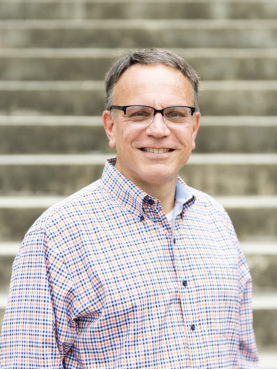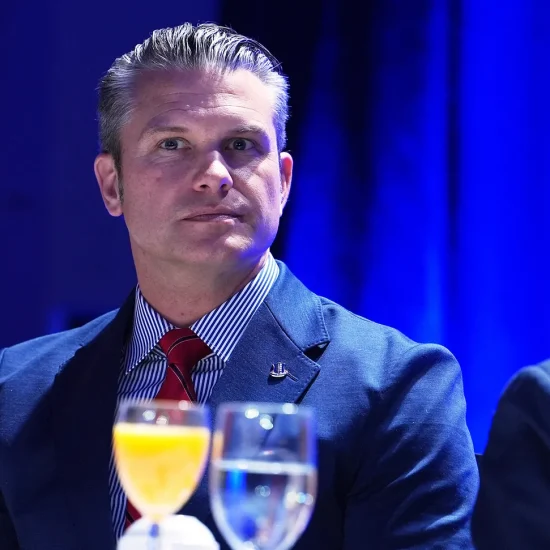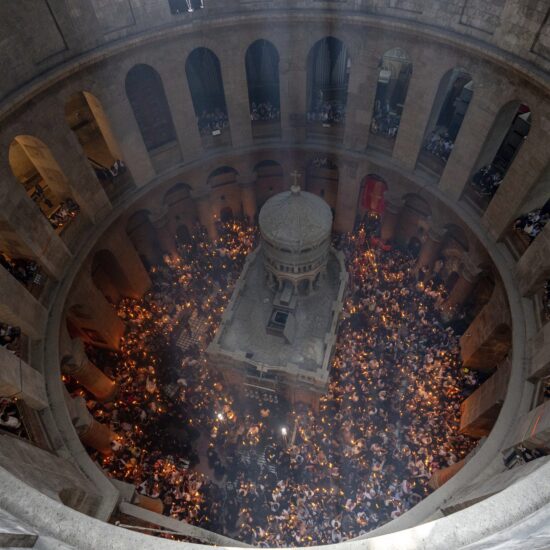
(RNS) — In 2012, Boz Tchividjian, grandson of famed evangelist Billy Graham, drove to the Lynchburg, Virginia, airport in his family minivan to pick up Stephen Jones, great-grandson of fundamentalist Bob Jones Sr.
The meeting, though planned, was highly improbable.

(Photo by Mart Production/Pexels/Creative Commons)
Known for banning interracial dating into the 21st century and having rules too rigid even for Graham, a former student who left after one semester, Bob Jones University in Greenville, South Carolina, is typically wary of outsiders. So it was a shock when Stephen Jones, then president of Bob Jones, invited Tchividjian’s nonprofit Godly Response to Abuse in the Christian Environment, known by its acronym GRACE, to examine the university’s handing of sexual abuse allegations.
The invitation came in the wake of the 2011 Penn State sex abuse scandal and amid nationwide conversations about institutional cover-up of sexual abuse. While BJU never stated a specific reason for hiring GRACE, survivors had approached Stephen Jones asking for a probe into the school’s handling of abuse, and he was a main driver behind the decision to hire Tchividjian’s nonprofit.

Boz Tchividjian. (Photo by Christopher Breedlove)
“For him to engage GRACE was a huge risk for him,” said Tchividjian, an attorney and longtime abuse advocate who is no longer formally associated with GRACE, and who spoke to RNS in his personal capacity. “He was getting a lot of pushback from various folks in his community, in the Bob Jones community, including leadership, not to hire GRACE. And despite that, I remember him telling me, ‘Bob Jones cannot move forward until we have fully addressed the past.’”
What followed was a 22-month investigation that included over 100 interviews, roughly 50 of which were with self-identified abuse survivors. The resulting 300-page report, released on Dec. 11, 2014, found the school’s emphasis on discipline and approach to biblical counseling was harming student abuse survivors.
“What was the most damaging was how they used faith, theology, Scripture, to silence victims, to shame victims, to scare victims,” said Tchividjian, an attorney advocate for abuse survivors. “The victims were being revictimized, while the offenders were being forgiven and restored.”
According to Bob Jones University, the school has significantly strengthened its response to abuse disclosures over the past decade.
“In the years since the GRACE Report, we have implemented a number of significant changes, including establishing the office of Student Care and requiring all employees and students to undergo sexual abuse awareness training with Ministry Safe, to improve how we handle cases of sexual abuse—whenever it occurred in a student’s life—and to ensure a safe and supportive environment for all members of our community,” said an email from a university spokesperson.
When asked whether it had followed the GRACE report recommendations, the school pointed RNS to a web page containing the school’s official apology and other policy updates. BJU also provided a link to its most recent Clery Report, which states that no incidents of rape or sex offenses have been reported since at least 2021, and said BJU continues to work with Ministry Safe to annually review and update abuse policies. The site also notes the school removed online sermons and other materials “found to be insensitive to abuse or assault victims” and has established a student care office so students can disclose abuse to a different department than the one that handles discipline.
“While we can’t speak to the specifics of past cases, we are continually evaluating and improving our practices to align with best practices,” the spokesperson said.
For abuse survivors who participated, the 2014 GRACE investigation was pivotal. Sheri Cotuna, whose account of being sexually assaulted by a BJU student in the 1990s was referenced in the report, said her interview with GRACE employees was the first time she heard the abuse condemned as “not of God,” and ultimately empowered her to report her abuser to police nearly two decades after the incident. Erin Burchwell, another abuse survivor and GRACE participant, said the report was the “beginning of connecting victims through social media, giving people a little bit of a voice.”

An entrance sign at Bob Jones University in Greenville, S.C. (Photo by John Foxe/Wikimedia/Creative Commons)
But some abuse survivors involved in the initial investigation fear too little has changed since the report. They say the university continues to implement a biblical counseling method critiqued in the report and to employ faculty members the report says promoted harmful practices. Referencing an ongoing lawsuit filed against the university by a former Bob Jones student in August 2020, they continue to call on the university to implement trauma-informed policies that prioritize student safety and healing over correction.
According to that lawsuit, a Bob Jones student, identified as Jane Roe, was allegedly raped while under the influence at a party at Furman University in Greenville in fall 2019, by a Furman student. When Furman officers were called to the scene due to concerns about a nonconsensual sexual encounter, according to the lawsuit, one of the officers called his alma mater, Bob Jones, to report Roe for drinking. Per the lawsuit, Roe was expelled hours later.
In a September 2020 legal response, Bob Jones University denied any wrongdoing and claimed Jane Roe “repeatedly denied” she’d been sexually assaulted. In a local news report, the university also claimed Roe was not expelled, but suspended, and could reapply to be admitted. Multiple calls to the plaintiff’s lawyers were not returned, and a Bob Jones spokesperson said they could not comment on ongoing litigation.
For Shielagh Clark, a former Bob Jones student who participated in the 2014 GRACE report, the situation feels eerily familiar.

Shielagh Clark. (Photo by Rachael Thompson)
Clark, a student of Bob Jones University in 2005, was asked to withdraw from the university after she became pregnant from what she has said was a rape by her longtime pastor, who was later charged with two counts of assault and battery of a high and aggravated nature in relation to his crimes against Clark, which dated back to 2000.
Nearly a decade later, during the GRACE investigation, Jim Berg, who served as dean of students between 1981 and 2010 and oversaw the campus’s response to abuse disclosures, defended the university’s decision to remove her from school for lying to obtain a pass to leave the school the day of the alleged rape. The GRACE report called Clark’s case a “tragic example of someone who needed compassion and healing but instead received discipline.”
According to Clark, the university exhibits a pattern of being more concerned about “sin or obedience” than about people.
“It seems from the outside that they did the exact same thing,” said Clark about the lawsuit involving Jane Roe. “They prioritized the rules over the human being.”
Abuse survivors are also distressed by Bob Jones’ continued use of biblical counseling — which they claim often involved questioning victims’ behavior before and during the abuse and encouraging them to confront their own sinfulness. Despite the GRACE report’s recommendation that the school refer all counseling for sexual abuse victims to outside licensed trauma counselors, Bob Jones’ website says its biblical counselors continue to respond to student abuse survivors.
“We believe Scripture is sufficient for addressing and meeting the spiritual needs of individual believers. For this reason, we remain firmly committed to a biblical counseling model as the basis for all of our on-campus counseling,” the website says. Students have the option to seek help elsewhere if they desire.
Cotuna recalls being counseled in this method by Berg after reporting her 1993 assault.
“Basically all of it was him asking the details about every little bit of what happened, and trying to get me to understand why God caused this. Because what kind of thing was in my life that would attract this, that would make this happen?” said Cotuna. “Yes, the offender caused me harm, but the greater harm was from the counseling and the school’s response, because they destroyed any hope I had of anything from God, any kind of comfort.”

Godly Response to Abuse in the Christian Environment logo. (Courtesy image)
The GRACE report also recommended that Bob Jones bar Berg, who is named in many of the abuse cases referenced in the report, from counseling or teaching on topics related to sexual abuse. Yet Berg remains a faculty member at the university, where he teaches counseling courses at the seminary. On its website, the university says Berg’s materials are biblically sound.

Sheri Cotuna. (Courtesy photo)
Tchividjian noted he was “really disappointed in the outcome of the process” and characterized Bob Jones’ response as having “a lot of form over substance,” though he said helping abuse survivors move toward healing made the effort worthwhile. When asked whether GRACE keeps tabs on the outcomes of its investigations, Pete Singer, who now leads GRACE, said the nonprofit doesn’t formally track whether organizations complete its recommendations, though institutions are welcome to contact GRACE after the process is complete.
For abuse survivors involved in the 2014 GRACE report, the way the university responds to abuse disclosures is a top concern. They hope to see the university acknowledge the risks of its counseling methods, so future students can avoid the psychological and spiritual turmoil many of them experienced.
“I don’t know that in this life, I will ever be completely free of how much BJU adversely influenced my view of God,” Cotuna said via email. “I hope that the way I live more accurately portrays how Jesus is described in the NT — as one who I believe would stand with a vulnerable and broken victim.”






